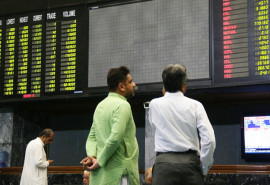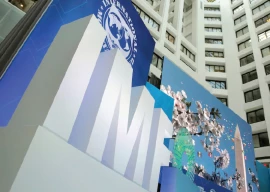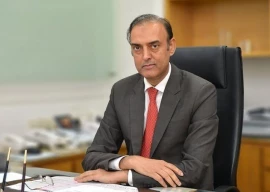
“The appointment of financial advisers, settlement of liabilities and assets, different options and required process will take five to six months,” the industries and production secretary told a parliamentary panel on Wednesday.
After the closure of the mill, an amount of Rs1.5 billion was being added every month to its total liabilities, he revealed, adding that the financial advisers had not expressed keen interest earlier and advertisements had to be published in newspapers again, which invited bids by October 7, 2019.
The secretary emphasised that the PSM revival issue would be resolved in the current financial year.
He said an expert group had recommended the inclusion of PSM in the privatisation list but added that it was possible to run the mill through public-private partnership. Prime Minister Imran Khan had been informed about the proposal, he said.
The official pointed out that the Ministry of Industries and Production had sought Rs15 billion in budgetary support from the Finance Division but there was no space in the budget.
He said the Sindh High Court had also given a verdict on payment of pensions from the consolidated fund to be shared by the provinces but that was not done. He requested the committee to summon the finance secretary to resolve the issue.
The meeting of the standing committee on industries was informed that tariff rationalisation was a big issue for PSM, which was not given tariff incentives due to mala fide intentions. However, five other companies and the auto sector were given tariff concessions through SROs.
Speaking about the affairs of Utility Stores Corporation (USC), the industries secretary said the subsidy on commodities had been abolished in line with the International Monetary Fund’s (IMF) loan conditions.
The committee summoned officials of the Federal Board of Revenue (FBR) in the upcoming meeting where they would be asked to make USC tax-free.
He said USC outlets had 12,800 employees against the requirement of 7,000. The corporation was paying Rs7.2 billion annually on account of staff salaries.
The meeting was informed that USC was running in profit until 2013 and the government was giving a subsidy on sales of sugar, ghee and flour. However, the subsidy was stopped after 2013 and the enterprise started recording losses.
Published in The Express Tribune, September 26th, 2019.
Like Business on Facebook, follow @TribuneBiz on Twitter to stay informed and join in the conversation.
1732071267-0/lana-(2)1732071267-0-405x300.webp)
1727242355-0/Diddy-(1)1727242355-0-165x106.webp)

1732063440-0/elon-(3)1732063440-0-165x106.webp)













COMMENTS
Comments are moderated and generally will be posted if they are on-topic and not abusive.
For more information, please see our Comments FAQ